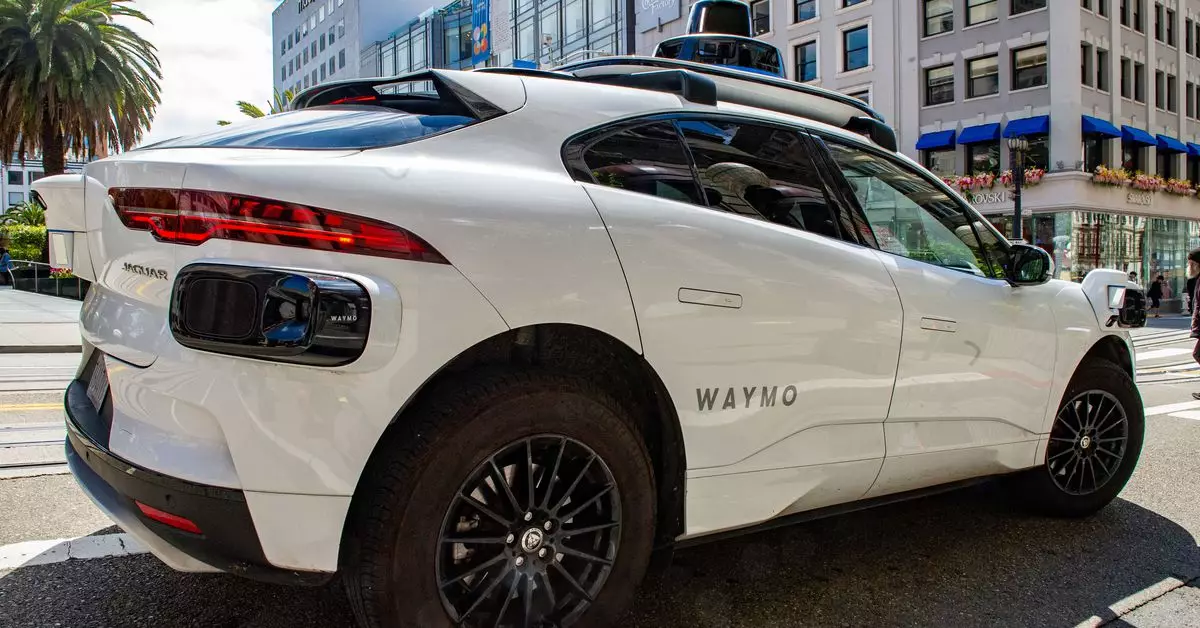Waymo, the self-driving division of Alphabet Inc., is embarking on a groundbreaking journey as it prepares to deploy its autonomous vehicles on the bustling streets of Tokyo, Japan. This marks a significant milestone as it is the first time Waymo is testing its technology in a foreign market. The announcement not only reflects the company’s ambition to expand internationally but also serves as an indication of its readiness to explore unique driving environments. Tokyo, known for its complex traffic patterns and left-hand driving, presents a multifaceted challenge that Waymo aims to navigate.
The primary objective of this initiative is to collect detailed mapping data that accounts for the distinctive characteristics of Japanese roads. The approach taken by Waymo involves manually operating the vehicles during this data-gathering phase, demonstrating a pragmatic strategy to familiarize its technology with local driving customs. A strategic partnership with Nihon Kotsu, a prominent taxi fleet operator, further enriches this venture, ensuring that the project is not only a test of technology but also a collaborative effort with local industry stakeholders.
Waymo plans to dispatch approximately 25 vehicles to Tokyo, with the initial set expected to arrive in early 2025. These vehicles will be driven by trained professionals who are equipped to capture data essential for adjusting the autonomous systems to the Japanese context. This systematic, data-driven approach underscores Waymo’s commitment to understanding the complexities of urban environments before transitioning to fully autonomous driving.
Waymo’s spokesperson, Sandy Karp, stressed the importance of this initiative as a learning opportunity rather than an immediate shift to a commercial robotaxi service. The careful and methodical nature of the project indicates Waymo’s intention to create a tailored solution for the Tokyo market, analyzing how its self-driving vehicles can integrate with an already sophisticated public transportation system.
Prospects of Market Entry
Though Waymo’s vehicles currently operate in various U.S. cities, including San Francisco and Austin, the company faces unique challenges in Japan, where consumer attitudes and regulatory landscapes may differ significantly. The inclusion of GO, a well-established taxi app in Japan, hints at a strategic alignment that may pave the way for future autonomous ride-hailing services, should Waymo choose to capitalize on the insights gathered during these tests.
This cautious yet optimistic approach reflects a broader trend in the industry, where several companies have recently recalibrated their plans, pivoting away from expensive autonomous taxi projects. Waymo’s entry into Japan comes at a time when other major players, like General Motors with its Cruise division, have scaled back their efforts, opting to focus on driver-assist systems and conventional vehicle ownership. Thus, Waymo’s commitment to international testing highlights not only its aspirations but also its resilience amid industry uncertainty.
In planning for the Tokyo testing phase, Waymo has identified several neighborhoods, including Shinjuku and Shibuya, as initial operational areas. This geofencing strategy serves to confine the vehicles to regions where traffic patterns are more predictable and manageable for data collection. As Waymo progresses through these stages, the transition to hands-free driving is anticipated, albeit with safety drivers still present during the early phases of deployment.
The future of fully autonomous operations in Tokyo remains uncertain, with Karp refraining from committing to a timeline or confirming plans for driverless services. This ambiguity reflects a broader cautious approach endemic to the autonomous vehicle sector, as companies grapple with regulatory hurdles and societal acceptance of self-driving technology.
Waymo’s international expansion into Tokyo exemplifies a thoughtful and calculated strategy aimed at establishing its technology in a diverse global market. By focusing on data collection and local partnerships, Waymo demonstrates an understanding of the nuances that come with deploying autonomous vehicles outside its domestic landscape. The success of this initiative could not only bolster Waymo’s credibility but also lay the groundwork for future services in other international markets, pointing toward a future where self-driving technology is an integrated part of the global transportation ecosystem.

